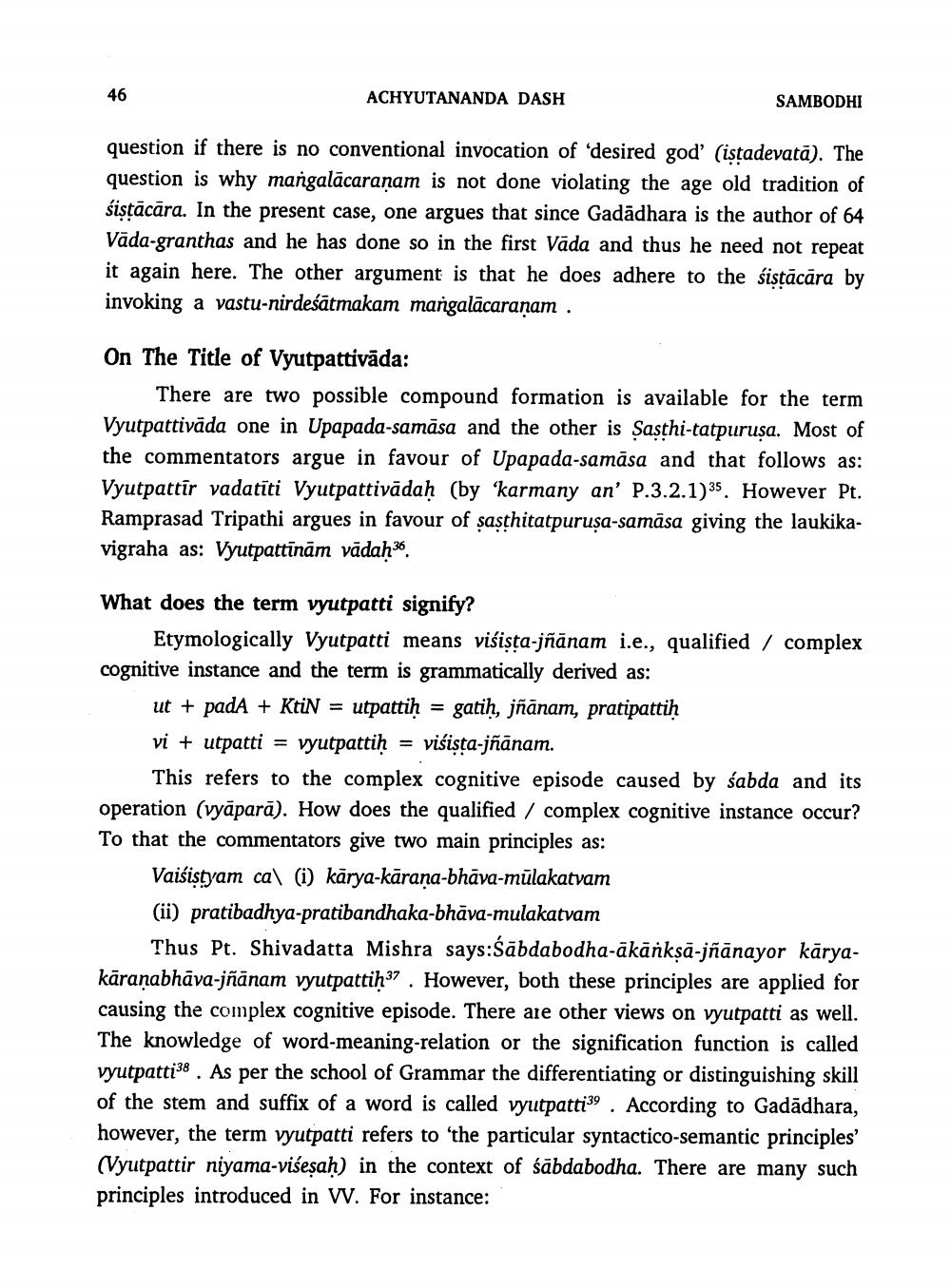________________
46
ACHYUTANANDA DASH
question if there is no conventional invocation of 'desired god' (iṣṭadevata). The question is why mangalācaraṇam is not done violating the age old tradition of siṣṭācāra. In the present case, one argues that since Gadadhara is the author of 64 Väda-granthas and he has done so in the first Väda and thus he need not repeat it again here. The other argument is that he does adhere to the siṣṭācāra by invoking a vastu-nirdeśātmakam mangalācaranam.
On The Title of Vyutpattivada:
There are two possible compound formation is available for the term Vyutpattivada one in Upapada-samāsa and the other is Sasthi-tatpurușa. Most of the commentators argue in favour of Upapada-samāsa and that follows as: Vyutpattir vadatīti Vyutpattivadaḥ (by 'karmany an' P.3.2.1) 35. However Pt. Ramprasad Tripathi argues in favour of sasthitatpurusa-samāsa giving the laukikavigraha as: Vyutpattīnām vādaḥ36.
SAMBODHI
What does the term vyutpatti signify?
Etymologically Vyutpatti means visiṣṭa-jñānam i.e., qualified / complex cognitive instance and the term is grammatically derived as:
=
ut + padA+ KtiN = utpattiḥ gatih, jñānam, pratipattiḥ
vi + utpatti
vyutpattiḥ
visiṣṭa-jñānam.
This refers to the complex cognitive episode caused by sabda and its operation (vyāparā). How does the qualified complex cognitive instance occur? To that the commentators give two main principles as:
Vaisistyam ca\ (i) kārya-kāraṇa-bhāva-mulakatvam
=
=
(ii) pratibadhya-pratibandhaka-bhāva-mulakatvam
Thus Pt. Shivadatta Mishra says:Śābdabodha-ākānkṣā-jñānayor kāryakāraṇabhāva-jñānam vyutpattiḥ37. However, both these principles are applied for causing the complex cognitive episode. There are other views on vyutpatti as well. The knowledge of word-meaning-relation or the signification function is called vyutpatti38. As per the school of Grammar the differentiating or distinguishing skill of the stem and suffix of a word is called vyutpatti39. According to Gadadhara, however, the term vyutpatti refers to 'the particular syntactico-semantic principles' (Vyutpattir niyama-viseṣaḥ) in the context of sabdabodha. There are many such principles introduced in VV. For instance:




